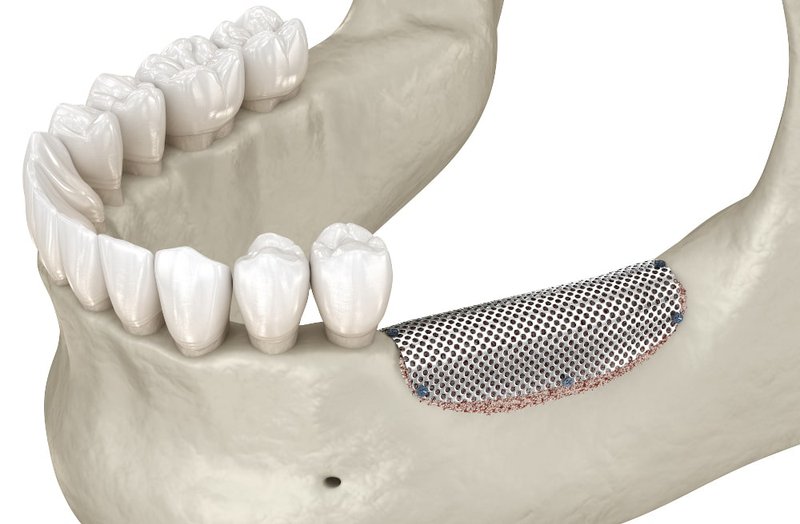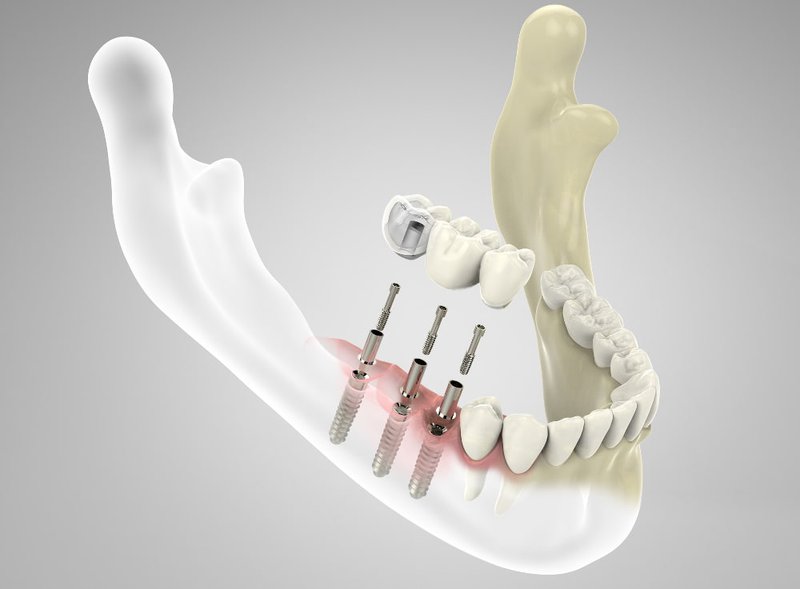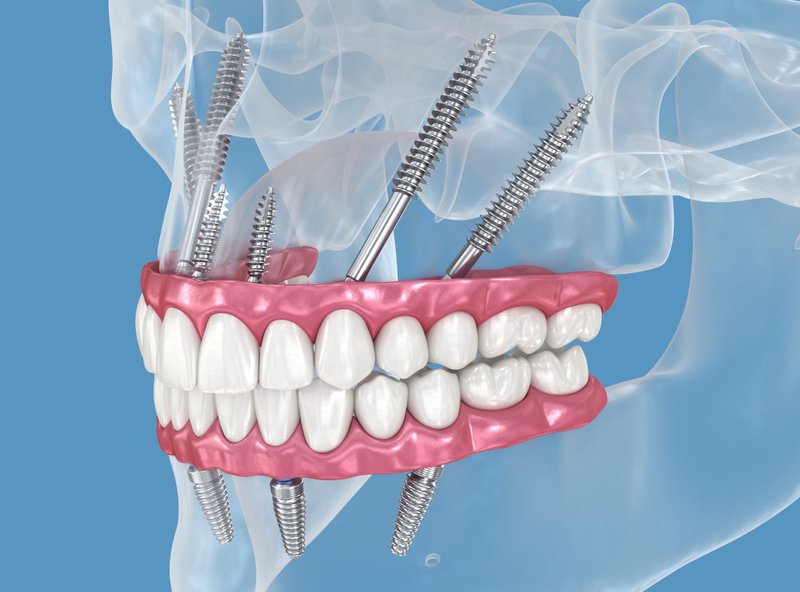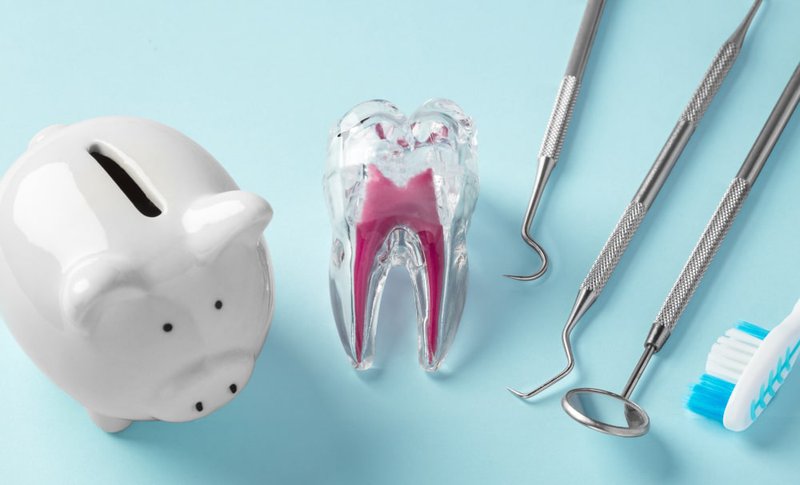
How Much Does a Dental Implant Cost in Ontario?
Key Takeaways
- Single dental implants in Ontario typically cost between $3,000 and $6,000, depending on the clinic, region, and the complexity of the procedure.
- Full-mouth implants, such as All-on-4 or All-on-6, can range from $25,000 to $50,000 per arch, with sedation and bone grafts often adding to the total cost.
- Endosteal implants are the most common and affordable type, while zygomatic implants are specialized and significantly more expensive.
- Prices vary not just by type of implant but by geographic location, required materials, and the dentist's expertise.
What is the average cost of a dental implant in Ontario?
The cost of a dental implant in Ontario can vary significantly depending on the clinic's location, technology, and level of expertise. On average, patients can expect to pay between $3,000 and $6,000 per implant. However, this price can increase if additional procedures are required, such as bone grafting or sinus lifts.
Surgical Cost vs. Total Cost
When evaluating the cost of an implant, it's essential to separate the surgical phase from the full restorative treatment:
- Surgical Phase: This includes placing the titanium post into the jawbone. It typically costs between $1,500 and $2,500.
- Restorative Phase: This involves attaching the abutment and dental crown, with a cost range of $1,500 to $3,500.
In some cases, clinics offer a bundled price for the complete procedure. Always ensure you understand what is and isn't included in the quote.
Cost Breakdown for a Single Implant in Ontario
| Component | Average Cost (CAD) |
|---|---|
| Surgical Implant Placement | $1,500 - $2,500 |
| Abutment and Crown | $1,500 - $3,500 |
| Total Estimated Cost | $3,000 - $6,000 |

How much do full mouth dental implants cost in Ontario?
Full mouth dental implants involve a more comprehensive and costly procedure than single implants. Most patients opt for solutions like All-on-4 or All-on-6, which provide a full arch of teeth supported by 4 or 6 implants.
Cost of All-on-4 and All-on-6
- All-on-4: Typically ranges between $25,000 and $35,000 per arch (upper or lower).
- All-on-6: Due to the extra implants and often more complex work, these range from $30,000 to $50,000 per arch.
Top vs. Bottom Arch Differences
While prices are often similar for upper and lower arches, the upper arch may cost slightly more because:
- Bone density is usually lower in the upper jaw.
- Procedures like sinus lifts may be necessary.
Additional Hidden Costs
- Sedation: $500 - $2,000 depending on the type (oral, IV, general anesthesia).
- Bone grafting: $500 - $3,000 if required.
- Temporary dentures or prosthetics may be needed during the healing process.
- Follow-up visits and maintenance: These can add $1,000 or more to the initial cost over the first year.
Full Mouth Implants Table
| Procedure | Cost per Arch (CAD) |
|---|---|
| All-on-4 Implants | $25,000 - $35,000 |
| All-on-6 Implants | $30,000 - $50,000 |
| Sedation (optional) | $500 - $2,000 |
| Bone Grafting (if needed) | $500 - $3,000 |
"Full arch restorations offer life-changing results, but they require significant planning and maintenance," notes Dr. Rob Eisen, DDS.
What types of dental implants are available, and how do they affect price?
The cost of a dental implant also depends on the type of implant system used. There are three primary types:
Endosteal Implants
- The most common type is placed directly into the jawbone.
- Typically, the least expensive option.
- Suitable for most patients with good bone density.
- Cost range: $3,000 - $6,000 per implant.

Subperiosteal Implants
- Placed under the gum but on or above the jawbone.
- Used when the patient lacks sufficient bone and refuses bone grafting.
- Less common and may involve higher customization.
- Cost range: $4,000 - $7,000 per implant.

Zygomatic Implants
- Anchor into the cheekbone (zygoma) instead of the upper jaw.
- Reserved for cases with extreme bone loss.
- Complex and requires specialized surgeons.
- Cost range: $15,000 - $25,000 per implant.

Pros and Cons Table
| Type of Implant | Price Range (CAD) | Pros | Cons |
|---|---|---|---|
| Endosteal | $3,000 - $6,000 | Most common, highly successful, stable | Requires good bone density |
| Subperiosteal | $4,000 - $7,000 | Avoids bone grafting, suitable for some | Less common, lower long-term success rate |
| Zygomatic | $15,000 - $25,000 | Solution for severe bone loss | Highly invasive, limited to complex cases |
What factors influence the total cost of a tooth implant procedure?
While base prices for dental implants in Ontario provide a general guideline, the final bill can be heavily influenced by a range of factors. These variables reflect the complexity of your individual case, the materials chosen, and the supporting procedures required.
Key Influencers of Implant Cost
- Materials Used: High-quality titanium or zirconia implants cost more but offer superior longevity and biocompatibility.
- Bone Grafting: If your jawbone isn’t dense enough to support an implant, a graft might be necessary. These can cost $500 to $3,000.
- 3D CT Scans: Many clinics utilize advanced imaging technology to assess bone structure and plan surgical procedures. These scans can add $200 to $500 to your cost.
- Sedation Options: IV sedation or general anesthesia increases comfort but also incurs an additional cost of $500 to $2,000.
- Specialist Fees: Surgeons with extensive experience or specialty certifications may charge higher rates, but they often deliver more predictable outcomes.
- Insurance Gaps: Even if you have dental insurance, implants may only be partially covered or excluded altogether.
Cost-Influencing Factors for Implants in Ontario
| Factor | Estimated Cost Range (CAD) |
|---|---|
| Titanium/Zirconia Materials | $1,500 - $3,000 |
| Bone Grafting | $500 - $3,000 |
| CT Scan | $200 - $500 |
| Sedation | $500 - $2,000 |
| Specialist Surcharge | Varies |
"Treatment plans should be tailored, not templated. We evaluate every case individually to ensure long-term success," emphasizes Dr. Jerry Jesin, DDS.
Are dental implants covered by insurance or health benefits?
This is one of the most frequently asked questions about dental implants — and understandably so. Unfortunately, in Ontario, dental implants are not covered by OHIP, and private plans vary significantly in coverage.
OHIP Coverage
- OHIP does not cover any aspect of dental implants, including surgery, imaging, or follow-ups.
- Only emergency dental surgery performed in a hospital setting may be eligible.
Private Insurance Plans
While some private or employer-sponsored dental plans offer partial reimbursement:
- Most classify implants as major dental procedures with limited annual maximums (e.g., $1,000 - $2,500).
- Often, the implant post is not covered, but the crown or bridge may be reimbursed partially.
- Some insurers require pre-authorization or will cover alternatives, such as dentures.
Exclusions and Limitations
- Pre-existing conditions may void eligibility.
- Cosmetic classification may block coverage.
- Waiting periods of 6 to 12 months may apply.
Can I finance my dental implants in Ontario?
Given the high upfront cost of dental implants, many patients wonder if financing options are available. The answer is yes — especially at the North York Smile Centre.
Financing Options at North York Smile Centre
- In-House Financing: Offers interest-free payment plans over 6 to 12 months for eligible patients.
- Third-Party Lending: Through partnerships with dental financing companies like Dentalcard or iFinance Canada, patients can apply for loans with longer terms (up to 60 months).
- Credit Card Payments: Accepted for both initial deposits and monthly installments.
Considerations Before Financing
- Check the total interest cost over the loan term.
- Confirm if a credit check is required.
- Ask about prepayment penalties or administrative fees.
What should I expect during the consultation and cost estimate process?
Your initial consultation for dental implants is a critical step in the treatment journey. It helps establish the viability of the procedure and provides a transparent cost estimate. Here’s a detailed look at what typically happens.
Step-by-Step Breakdown
- Medical and Dental History Review
- The dentist will assess your overall health and any medications that could affect healing.
- Oral Examination and Imaging
- Includes panoramic X-rays or 3D CT scans to evaluate bone density and structure.
- Discussion of Treatment Options
- You'll be presented with various implant types, timelines, and any preparatory procedures, such as bone grafts.
- Customized Treatment Plan
- A written plan will include each stage of the implant, itemized costs, and potential add-ons.
- Cost Estimate and Payment Options
- Most clinics provide a written estimate, and their staff will walk you through the financing or insurance eligibility process.
What to Bring to Your Consultation
- Recent dental X-rays (if available)
- List of medications and medical conditions
- Dental insurance card or policy information
- Previous dental records, especially if you’ve had periodontal or oral surgery
Questions to Ask Your Dentist
- What’s included in the quote?
- Are bone grafts or extractions expected?
- How many implant cases have you performed?
- What materials do you use for posts and crowns?
- What are the risks, and what’s the success rate?

How long do dental implants last, and are they worth the cost?
Dental implants are often referred to as a long-term investment in oral health — but how long do they really last, and is the expense justified?
Expected Lifespan
- Implant Posts: With proper care, the titanium or zirconia post can last 20 years or more, often for a lifetime.
- Crowns or Prosthetics: These may need to be replaced every 10–15 years due to wear and tear.
Factors Affecting Durability
- Oral hygiene: Daily brushing, flossing, and regular cleanings are essential.
- Smoking: Significantly increases the risk of implant failure.
- Bone quality: Stable bone levels help support the implant in the long term.
- Health conditions: Diabetes and autoimmune diseases may reduce success rates.
Lifespan Comparison Table
| Restoration Type | Average Lifespan | Notes |
|---|---|---|
| Dental Implant Post | 20+ years (often lifelong) | Requires stable bone and care |
| Dental Crown | 10–15 years | May need replacement due to wear |
| Bridge | 7–10 years | Adjacent teeth may be affected |
| Denture | 5–8 years | Less stable, often needs relining |
Are They Worth the Cost?
Dental implants offer:
- Superior comfort and function vs. dentures
- Long-term cost-efficiency (no adhesives, less maintenance)
- Preservation of jawbone and facial structure
Supporting Research
- According to the Canadian Dental Association, the success rate of dental implants is over 95%: https://www.cda-adc.ca.
- A study published in the Journal of Dental Research found that implants retain 90% of their functionality even after 15 years.
What happens if I delay getting a dental implant due to cost?
It’s understandable to postpone dental treatment for financial reasons. However, delaying a dental implant can result in more than just inconvenience — it can lead to serious oral health consequences and increased costs in the long run.
Progressive Bone Loss
When a tooth is missing, the jawbone in that area begins to deteriorate due to a lack of stimulation from chewing. According to the Journal of Oral Implantology, patients can lose up to 25% of bone volume within the first year after tooth loss. Over time, this can make future implant placement more complex or even impossible without the use of bone grafting.
Shifting Teeth and Bite Misalignment
- Adjacent teeth begin to tilt into the gap, causing crowding or spacing issues.
- Opposing teeth may super-erupt (grow longer) into the space left by the missing tooth.
- Changes in alignment can lead to jaw pain, TMJ disorders, or excessive tooth wear.
Increased Long-Term Costs
- Bone grafting alone can add $500 to $3,000 to your treatment plan.
- Orthodontic correction may be necessary to correct tooth shifting.
- Delayed treatment may mean multiple implants or even full-arch solutions if additional teeth are lost.
What should you consider before investing in dental implants in Ontario?
Dental implants are a significant investment, but when planned strategically, they provide life-changing benefits that extend far beyond aesthetics. Here’s a concise overview of what to consider as you move forward.
Summary of Key Factors
| Aspect | Summary |
|---|---|
| Average Cost | $3,000–$6,000 per single implant; $25,000+ for full arches |
| Factors Affecting Price | Materials, imaging, grafts, sedation, region, specialist expertise |
| Types of Implants | Endosteal (standard), Subperiosteal, Zygomatic (complex cases) |
| Financing Options | In-house plans, third-party lenders, and credit card payments |
| Insurance Coverage | Not covered by OHIP; limited private reimbursement |
| Risks of Delaying | Bone loss, shifting teeth, rising costs, reduced treatment options |
Next Steps for Patients
- Book a comprehensive consultation with a specialist.
- Request a detailed cost estimate and consider exploring financing options early.
- Review your insurance policy to determine the applicable benefits.
- Act promptly to avoid escalated treatment plans.
For more information, visit:
- Ontario Dental Association: https://www.youroralhealth.ca
- Canadian Dental Association: https://www.cda-adc.ca

